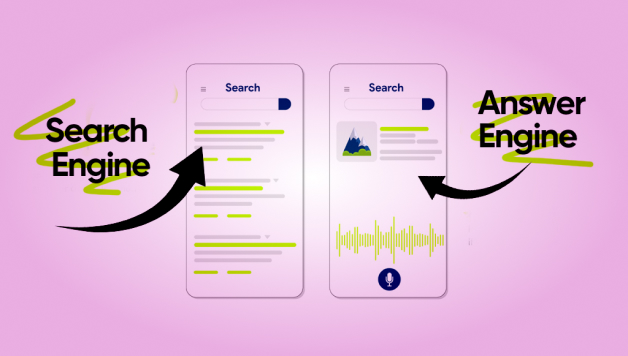The Future of White Label Marketing in a Digital-First World
In today’s fast-evolving digital landscape, businesses are constantly seeking innovative solutions to maintain relevance and growth. For many, the strategy of outsourcing certain functions has become pivotal, with a particular rise in white label digital marketing services. A white label digital marketing agency provides these services under another company’s branding, enabling agencies to expand their offerings without increasing in-house resources. As we enter a digital-first era, the future of white label marketing holds tremendous potential, promising even greater collaboration, customization, and efficiency. This article delves into the evolving role of white label marketing and the key trends set to shape its future.
The Rise of White Label Marketing: A Quick Overview
White label marketing has become increasingly popular in recent years, driven by the exponential growth of digital technology and the demands of a competitive online market. Originally, white labeling was predominantly used in industries like manufacturing, but it’s now an integral part of the marketing ecosystem. Agencies can now rely on white label services to provide specialized digital solutions—from SEO to PPC advertising and social media management—without the overhead of hiring and training additional staff.
For businesses, this approach provides an agile solution to market demands. It also means that smaller companies, without the resources of larger competitors, can offer comparable digital services through trusted white label providers. As more companies shift to a digital-first mindset, white label marketing is set to grow, enabling agencies to adapt rapidly to new trends and technologies.
Key Drivers Shaping the Future of White Label Marketing
As the digital-first landscape continues to evolve, several factors are influencing the development and expansion of white label marketing. These drivers are shaping how white label services are offered, how businesses utilize them, and ultimately, how they impact client relationships and satisfaction.
- Increased Demand for Specialized Services
As digital marketing becomes more complex, businesses are increasingly seeking specialized expertise. For example, while traditional SEO is essential, areas like local SEO, voice search optimization, and AI-driven insights are now in high demand. White label providers specializing in these areas allow agencies to quickly scale their service offerings to meet specific client needs without the expense of in-house specialization. - Scalability and Cost Efficiency
White label marketing enables agencies to scale up or down as needed, which is crucial in a digital-first economy. Many agencies now use white label partners to offer additional services or handle sudden increases in client demand, especially during seasonal peaks or marketing campaigns. This flexibility is cost-effective and ensures that agencies maintain profitability by adapting quickly without long-term commitment to extra resources. - Focus on Data-Driven Insights and Personalization
The future of digital marketing is heavily data-driven, and white label providers that offer analytics and insights can add substantial value to agencies’ offerings. As clients expect more personalized marketing, agencies must leverage data to tailor campaigns accurately. White label providers that focus on advanced analytics enable agencies to deliver targeted and results-driven solutions, helping clients better connect with their audience. - Integration of Artificial Intelligence (AI) and Machine Learning (ML)
AI and ML are redefining digital marketing by automating tasks, improving customer targeting, and enabling predictive analytics. White label providers are increasingly integrating these technologies to improve efficiency and offer high-tech solutions. For instance, chatbots, content generation, and automated reporting powered by AI are becoming standard offerings that agencies can easily integrate into their portfolios with the help of white label partners. - Expansion of Multichannel Marketing Solutions
Today’s consumers interact with brands across multiple platforms, from social media to email to search engines. A robust white label provider can help agencies deliver integrated, multichannel campaigns that reach clients wherever they are. Multichannel strategies help brands create a seamless customer experience, increasing brand loyalty and conversion rates. As this trend grows, white label providers are expected to further expand their multichannel capabilities to cover emerging platforms and integrate cohesive strategies. - Emphasis on Cybersecurity and Data Privacy
With the rise in digital marketing, data security is more critical than ever. Consumers are increasingly concerned about how their data is used, and regulations like GDPR and CCPA reflect this shift. White label providers must prioritize security measures to protect client data and adhere to regulatory standards. Agencies can then assure their clients of safe and compliant marketing practices, a key factor in maintaining trust. - Rise of Automation and Streamlined Processes
Automation is the backbone of efficiency in digital marketing, allowing teams to focus on strategy and creativity while leaving repetitive tasks to technology. White label providers are increasingly offering automation tools, from content scheduling to performance tracking and reporting. This streamlined approach helps agencies provide faster, more consistent results, ultimately improving client satisfaction and retention rates.
The Benefits of White Label Marketing in a Digital-First World
The continued rise of white label marketing is a direct response to the evolving needs of modern businesses. Here are some of the core benefits it provides:
- Brand Consistency
White label services allow agencies to deliver consistent branding for their clients, maintaining a unified image across all digital platforms. This is especially valuable in the digital-first world, where brands must present a cohesive image to establish trust and recognition. - Faster Time to Market
White label solutions speed up the time it takes to launch new services. This means that agencies can offer in-demand digital solutions—like social media marketing, SEO, and more—almost immediately, keeping them competitive in the fast-paced digital environment. - Reduced Risk
Working with an established white label provider allows agencies to expand services without the risks associated with hiring or developing in-house expertise. They can rely on the proven skills of their partners, minimizing operational risks.
Future Challenges and Considerations
While white label marketing offers many advantages, it also comes with challenges. To remain competitive, agencies should be aware of potential hurdles and seek out innovative white label providers who can navigate these challenges.
- Maintaining Quality and Accountability
The agency-client relationship depends on trust, and agencies must ensure that the quality of white label services meets or exceeds expectations. Selecting reputable white label providers with a history of success is crucial for building client confidence. - Managing Client Expectations
White label marketing can sometimes create a gap in communication between the agency, the white label provider, and the client. Agencies need to set clear expectations with clients, maintaining transparency and ensuring alignment with service outcomes. - Adapting to Rapid Technological Change
The digital landscape is dynamic, with new tools, platforms, and algorithms emerging constantly. White label providers must remain adaptable, updating their offerings and keeping pace with these changes. Agencies, in turn, should partner with white label providers that are committed to innovation. - Building Long-Term Relationships with White Label Partners
Agencies benefit most from white label providers who act as true partners. Building long-term relationships with white label providers ensures continuity, trust, and a more collaborative approach to meeting client needs. As the market grows more competitive, these strong partnerships will play an essential role in an agency’s success.
Conclusion: Embracing the Future of White Label Marketing
In a digital-first world, the future of white label marketing is bright. The ongoing demand for specialized expertise, data-driven strategies, and multichannel solutions positions white label digital marketing as a transformative option for agencies looking to expand their reach without compromising quality. By carefully selecting and fostering partnerships with experienced white label providers, agencies can keep pace with evolving client expectations and digital trends.
As businesses increasingly prioritize flexibility, innovation, and scalability, white label marketing is set to become an essential tool for growth. Embracing this future means that agencies, large and small, can continue to deliver top-tier digital solutions, meet changing demands, and succeed in a rapidly shifting digital landscape.














Post Comment